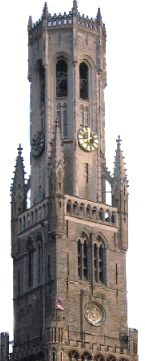Industry and Living in an Urban Society
Modern urbanized societies experience increased pressures on land use and its associated environmental quality. This urges governments and planners to find balances in the use of land for residential, industry, transport, nature and other purposes. Solutions for this increased stress on urbanized environments may be found in a better management of polluted areas (e.g. brown fields and mega sites), a local and regional clustering of industrial activities and a sustainable urban design.
We invite city planners, environmental authorities, industry representatives, private investors and scientists to share their experience in this field and to discuss about tools, opportunities and risks of future industrial and urban site development.
Theme 1: Megasites for soil and groundwater contamination (L. Diels)
Contamination of megasites, being e.g. large industrial sites, docklands, mining sites etc, forms a large environmental threat, but also a challenge for further socio economical developments. An integrated management approach will allow to combine remediation actions (as much as possible integrated and passive treatments) with new developments and going-on commercial activities.
S. D'haene and Ludo Diels:
"Olympic gold at redevelopment megasites in old harbours"
Theme 2: Sustainable industrial cooperation through local and regional clustering (W. Van Aerschot)
Sustainable industrial cooperation creates opportunities in the environmental, economic and social field, by exchanging by-products (energy, water, waste, …) and by sharing common infrastructure and facilities. This results in a significant reduction in environmental impact, reduced consumption of resources and economic benefit.
Theme 3: Urban growth and economic development (Guy Engelen / Paul Campling)
Cities have typically been nuclei of economic activity and growth. Today over 50 % of the world population lives and works in a city. This proportion will only grow in the near future. In order to ascertain the quality of life and economic prosperity in urbanised areas, planning and policy making authorities responsible for their management require more than ever scientifically rooted tools enabling the careful assessment of alternative plans and policies. State of the art geo-technology and integrated modeling bring about instruments capable of providing the support required. They are spatially-explicit, holistic and prognostic in nature. In this session experiences on the development and use of the latter tools are discussed.
Theme 4: Urban growth and air pollution (K. De Ridder)
Cities and towns experience increasing signs of environmental stress, notably in the form of poor air quality. A sustainable urban design has therefore become a necessity. This session will focus on the relation between urban growth and air quality and on the effect of design measures.
Members of the Scientific Advisory Board
Theme 1: Megasites for soil- and groundwater contamination
- Huub Rynaarts
- Ludo Diels
Theme 2: Sustainable Indsutrial Cooperation through local and regional clustering
- Greet Van Eetvelde
- Walther Van Aerschot
Theme 3: Urban growth and economic development
- Elias R. Gutierrez
- Guy Engelen
- Paul Campling
Theme 4: Urban growth and air pollution
- Carlos Borrego
- K. De Ridder
Partnership
- University of Puerto Rico

